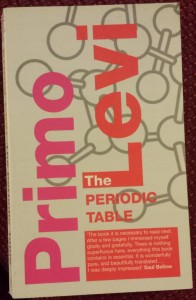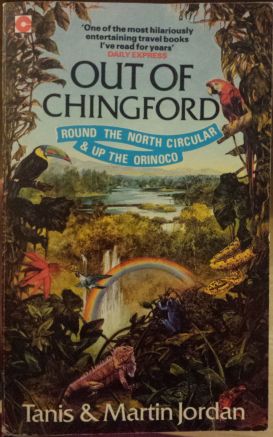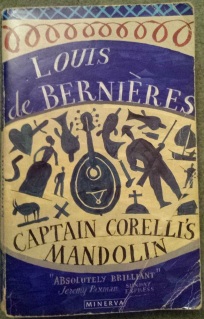“Why, why?” I hear you cry. Harumph, Oh OK then.
Altered Carbon is a Complex cyberpunk murder mystery. I was originally skeptical of this claim as it seemed like a steep hill to climb.The whole cyberpunk genre is typified by it’s destructive activities, so how does one murder find its way to the top of the story line through all the conspiracy, cracking, hacking or other subversive carrying on? How do you define one murder as central to the plot over all the other carnage on offer? Altered Carbon manages to deliver this via an additional dimension to the standard murder mystery paradigm introduced by, and not in-spite of the advanced technical setting. The use of the environment and the way that our evolution into it is used allows for many situation that should feel alien to us 21st century beings, but Richard Morgan’s captivating prose managed to take you along for the ride of your life (he he blurb cheese added on purpose.)
In the context of what I have read since starting this blog and why I’m doing it, I need to mention the society that
Altered Carbon portrays. A far future where humans inhabit other worlds and have managed to shrug off their reliance on just one body provides a very interesting setting of a book. But look behind the main story and
Altered Carbon is also a beautiful rendering of a future where capitalism is still the way things work. More to the point, if you strip away the technology and the years from
Altered Carbon, you get a society not too far removed from that depicted in
The Ragged Trousered Philanthropists! The rich get richer and the poor are used and abused. The basic premise is further exacerbated when the Meths (a reference to
Methuselah from the Bible) can live for hundreds of years and their superiority over normal people is further confirmed.
As I said (tweeted?) when I started this book, there is a lot of reviews splattered over the back page and the first couple of the edition that I have. I usually think that a book is trying too hard if it has that many reviews, but as they are there, I have copied them out below and formed the remainder of this review on what other people said 🙂
“Outstanding. This seamless marriage of hardcore cyberpunk and hard-boiled detective tale is an astonishing first novel.”
The Times
“Hits the floor running and then starts to accelerate. For a first novel it is an astonishing piece of work. Intriguing and inventive in equal proportions and refuses to let go until the last page. A wonderful SF idea.”
Peter F. Hamilton
I completely agree with Peter’s review, and coming from him that is praise indeed. I imagine what it would be like to write a book and then have such a glowing review come in from such a highly regarded author. WOW, that must be amazing.
“Carbon-black noir with drive and wit, a tight plot and a back-story that leaves the reader wanting a sequel like another fix.”
Ken Macleod
I definitely agree about the withdrawal symptoms as mentioned above. Like so many of the drugs described in the book. But I’m always apprehensive of sequels. I have been told that the remainder of the Hyperion Cantos by Dan Simmons are epic, but the first book and specifically the end of the first book is so good and so complete in its own right that I can’t bring myself to read the rest (and I don’t own them so I can’t just yet anyway 🙂 )
“Brilliant. Unputdownable. Lots similar blurb-writing clichés, only in this case true. I lived it. It is expertly plotted, grips you throughout, a high-tech ride in which the shocks and excitement are placed with machine-tooled polish. It is also superbly written, passages of cool, detached writing that is wonderfully atmospheric, alternating with passages of ultraviolence brutal enough to be genuinely shocking ”
Adam Roberts
I like the cliche reference, very self conscious and I know what he means. Great to juxtapose these reviews with the really short one from Raven (near the bottom of the post.) Also, the book has a few sex scenes. They were very well written and didn’t make me cringe! Further more, the first major sex scene in the book was actually part of the plot! In my experience that is almost unheard of.
“Morgan’s first novel is a brilliant start to what promises to be an outstanding career. ALTERED CARBON captures the best of SF and spins it in a new direction that will not only have existing genre fans crying out for more, but will in all likelihood attract the biggest new readership since William Gibson made SF cool again. This is without doubt my hottest recommendation for 2002.”
Michael Rowley, Watertstones Enigma magazine
Michael might just be right that this book could be a gateway to the harder SciFi available on the streets these days. Maybe I should get my mum to try it, or my Bro’ as he got it for me in the first place? Comparing it to William Gibson, that’s a big claim, and to be honest, fair. It’s that good.
“An exhilarating and glossy adventure punctuated by bursts of extreme violence. The plot reaches terminal velocity early on and stays there. What makes ALTERED CARBON a winner is the quality of Morgan’s prose. For every piece of John Woo action there is a stunning piece of reflective description, a compelling sense of place and abundant 24-carat witticisms. A commanding novel.”
SFX magazine
I agree. I’m not so sure about the wit though? One of the other reviews also mentioned wit. Don’t get me wrong, most of the wit is fine, but there was a couple of occasions where an overly cheesy line clanged a little and pulled me out of the book. In older cyberpunk and SF novels, these lines weren’t so cheesy, they were new and fresh. A generation of books and films later, and they are beginning to be past it in a book as slick as Altered Carbon. So, should Mr.Morgan have abstained? no, of course not 🙂
“A crisp, tight SF mystery. Its plotting is nothing short of first rate. The level of sheer pulp violence is almost exhilarating. ALTERED CARBON may be high-octane pulp, but it’s pulp that does exactly what it sets out to do.”
Locus
Sometimes the violence may have been a bit overdone. In most places the action is very well grounded to make the story feel real, but occasionally fingers get broken when the situation didn’t really call for it. The story wouldn’t have lost anything with a tiny teeny weeny bit less violence. I agree that the plotting was amazing. How did he do that?? (Grrrr.) Is it pulp?? Not according to me and all these other reviewers!!
“I was completely blown away by ALTERED CARBON. From the very first page, it’s a pure adrenalin rush of slick, hard-hitting prose, superb characterisation and a plot that grabs you and won’t let go. A superbly rich and varied feast of fiction. Richard Morgan is destined to be a very, very big name in science fiction circles for a long time to come. Welcome to the next big thing.”
The Alien Online
This is the first mention of characterisation in the reviews. Surprising since it is good, nay “superb”.
“A superb SF Noir-thriller…truly remarkable. Brash and violent, highly intelligent and highly entertaining. Morgan bounds on to the stage with his debut performance and totally astounds the audience.”
SF Revu
“A first novel so exciting, so addictive and so bone-crunchingly in your face that it beggars the need for such virtual reality as it occasionally employs. This is a ceaseless, permanently off-balance sprint through an all-to-grimly-familiar future where miraculous technologies are degraded through everyday use and abuse. There are occasional throwaway mentions of background details here that beg entire novels on their own; ubiquitous pieces of history dismissed in single lines that had my nose twitching, scenting something far bigger lurking, hidden under the surface.”
Infinity Plus
The whole point of the Virtual reality is that you can be even more violent in it! The whole Altered Carbon idea detaches consciousness from body to allow the option of immortality if you can afford it, or at least the option for much more interesting torture techniques. The only thing people really have to deal with is the pain, and ain’t that the truth of life!!
The second half of this review is basically a long way of saying that Richard Morgan has successfully created a realistic world via the use of good story telling and strong preparation / imagination. Basically bloody good writing!
“Dazzling. An excellent, no-holds-barred, fast paced thriller with a strong central character and plenty of betrayals, twists, shocks and action.”
Dreamwatch Magazine
“A tautly plotted slice of noir…the sense of wonder is in the details. Morgan gives notice that there’s a new star in the SF firmament”
The Third Alternative
Nice use of the word firmament. Cap doffed.
“A homage to old-school cyberpunk…ALTERED CARBON reads like a hypermodern vampire novel.”
The Guardian
Obviously the vampire reference is due to all the castles, crypts, fangs and blood sucking??? I kinda get what they mean though.
“High-tension SF action, hard to put down, though squeamish readers may shut their eyes rather frequently.”
David Langford, amazon.co.uk
I’m not sure if this was an official review from amazon or a review that was plucked off the site?? Either way, when its a book and not a film, shutting your eyes doesn’t work! The bad bit won’t go on without you if your face is pointing at a book!
“Combining thought-provoking ideas with page-turning, intense narrative is no mean feat, but ALTERED CARBON delivers. Richard Morgan looks set to become one of sf-noir’s best, diamond-bright practitioners.”
Interzone
So, there you have it. Half my review and half other peoples, but I think you will agree that it conveys my enjoyment of reading the book and my respect for Richard Morgan for writing it. Especially as it is his first novel. Having had a couple of novels floating around my head for many years, I know they need a lot more polishing (and actually writing something) before I risk them against the outside world as Richard Morgan has so successfully done.
 The Periodic Table is a very clever book that winds tales about Primo’s life into the fabric of the table that defined his vocation. Each chapter of the book represents a different element, and they blend together into a more or less coherent chronology of a life defined by chemistry and pulled in every other way by uncontrollable events. The reviews on the front and back of the book suggested a very well written, must read book. I can’t disagree with either of those statements.
The Periodic Table is a very clever book that winds tales about Primo’s life into the fabric of the table that defined his vocation. Each chapter of the book represents a different element, and they blend together into a more or less coherent chronology of a life defined by chemistry and pulled in every other way by uncontrollable events. The reviews on the front and back of the book suggested a very well written, must read book. I can’t disagree with either of those statements. Since first seeing the wonderful cover of this book I felt sure that I would enjoy it. I am of course, an
Since first seeing the wonderful cover of this book I felt sure that I would enjoy it. I am of course, an 